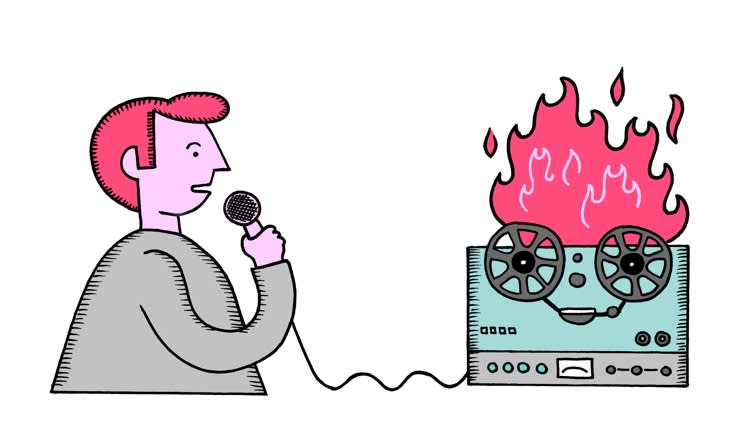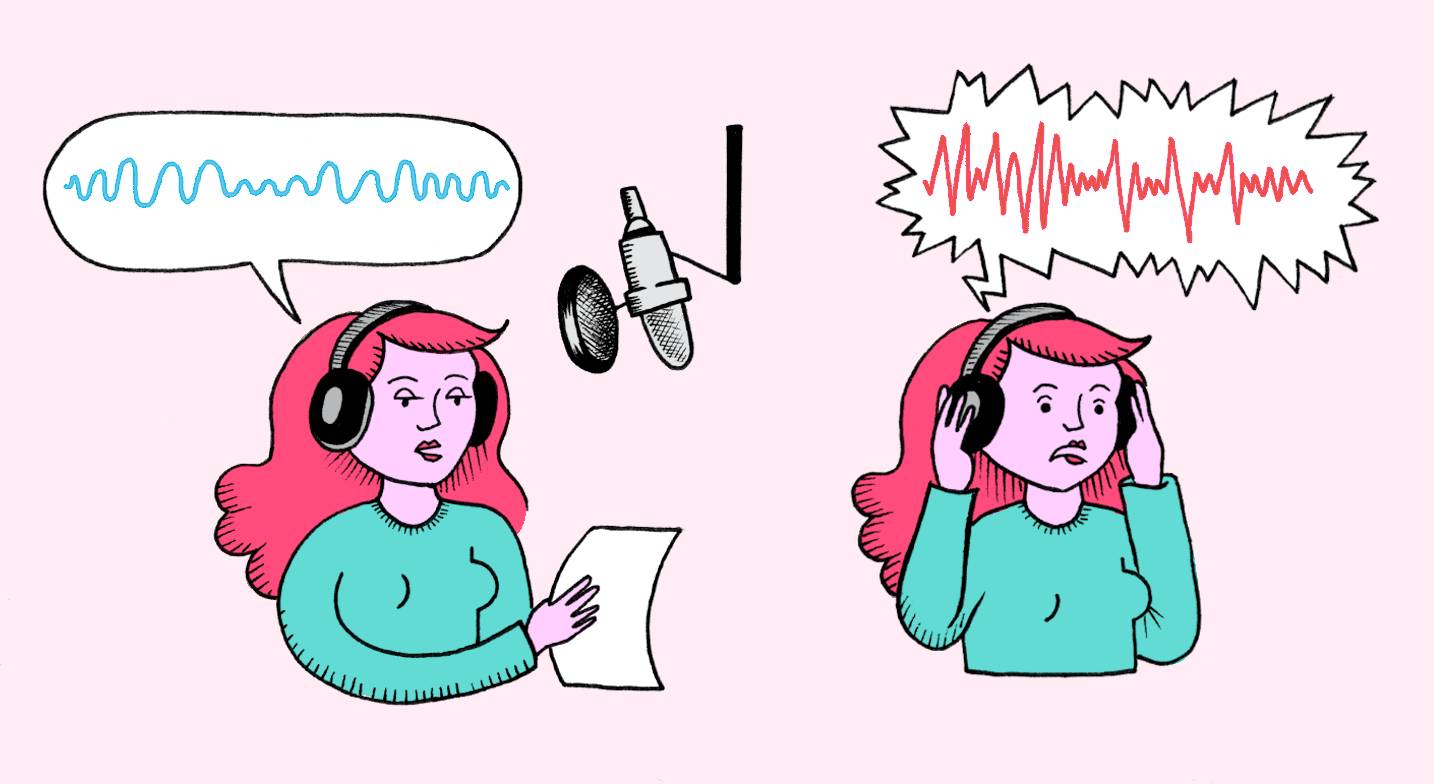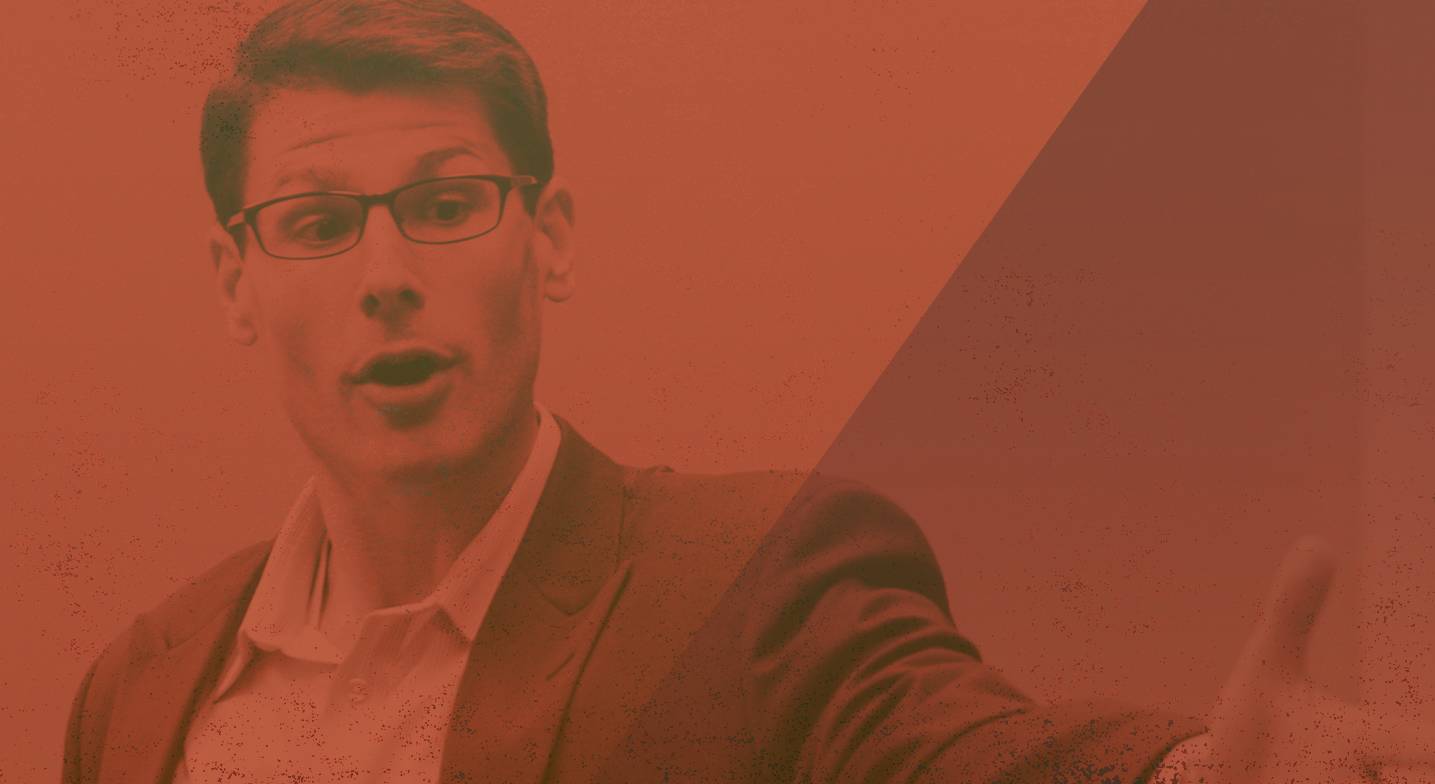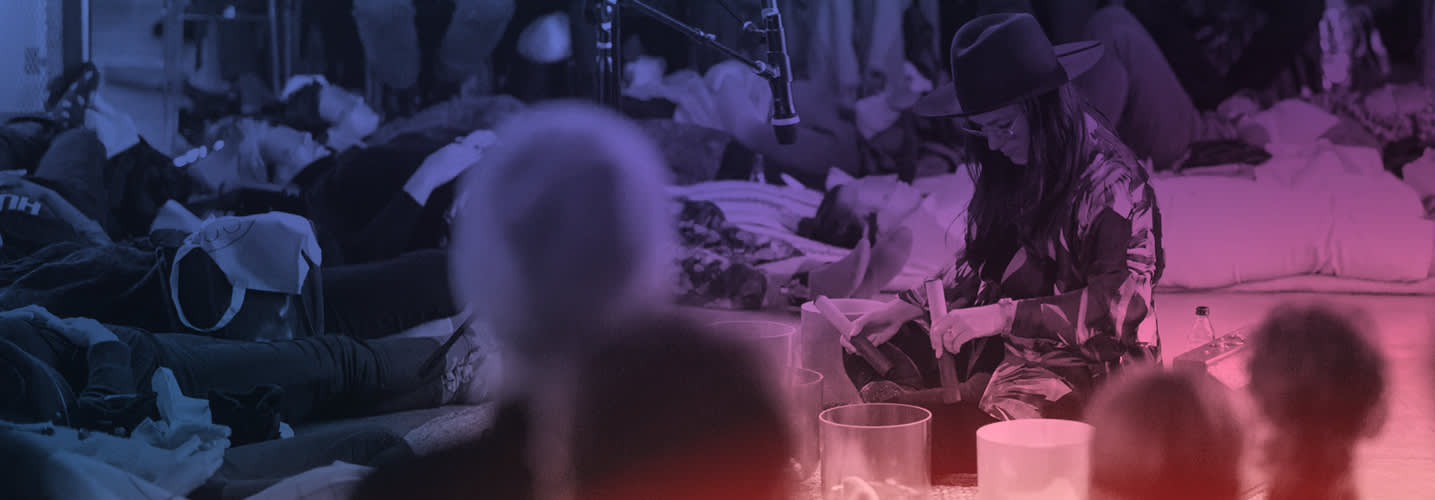It’s been nearly 50 years since John Rennie first heard his voice as others hear it, yet the trauma of that memory is still potent enough to make him shudder.
It started innocently enough: He and Fred, a fellow 9-year-old, were playing around with Fred’s parents’ fancy open-reel tape recorder. After a few minutes chatting, Fred stopped the recording, rewound the tape, and hit play. Rennie was delighted to hear Fred’s immediately recognizable voice issue forth from the speaker. But when his own voice crackled to life, his amusement turned to horror.
“The words sounded familiar, but that voice — that hideous, shrieking voice — couldn’t possibly be mine,” he recalls thinking. But when Rennie protested that something must be wrong with the recorder, Fred and his parents gently reassured him that actually, no, that was in fact the way he sounded.
“They told me I shouldn’t feel bad, because everyone hates the sound of their own voice,” he says. “It was not a comfort.”
Rennie, now the deputy editor of Quanta Magazine, has hosted radio shows and podcasts throughout his career and has made frequent television appearances. And yet, he never fully got over his initial feelings about how he sounds. Instead, the loathing has evolved into “deep disappointment” and weary acceptance. “My actual voice makes a mockery of everything I want and imagine my speech to be,” he says. “But I accept that it is what it is, and it’s not getting any better.”
While Rennie has perhaps put an exceptional amount of thought into how he feels about his voice, his distaste at hearing himself speak is not at all unusual. Research conducted as far back as 1966 confirms that having a “voice-confrontation experience” tends to be disturbing for people.
That finding is still relevant today. Laurie Tarkan, a freelance health journalist in New Jersey, for example, says she “can’t stand” the sound of her own voice. “When I’m transcribing interviews, I usually fast forward over myself because it’s too painful to listen to,” she says.
The more familiar a person is with hearing their own voice, the more they tend to like it.
Likewise, Matt Shipman, a science writer in North Carolina who sometimes does voice-over work and is often a guest on radio shows and podcasts, “loathes” the way he sounds. “I feel like my voice belongs to someone who should be hired to move heavy objects, not someone who can offer insights about how to communicate technical details in a nuanced way,” he says.
Rocki Holder, an adjunct professor of communications at Our Lady of the Lake University in San Antonio, adds that in 38 years of being a speech teacher, she has “never encountered anyone who liked the sound of their own voice, myself included.”
That we’re strangers to the true sound of our voices seems to be at the heart of these feelings. Physics and physiology are to blame. Sounds normally travel through air to reach our ear, but when we speak, they also travel through bone and muscle, which causes certain distortions. Acting as a protective filter, small bones in the middle ear called ossicles, vibrate to attenuate the relatively loud sound of our own voice, which causes the voice we hear when we speak to sound deeper than the voice that’s played back to us on a recording.

Many find that slight disconnect to be uncanny: It’s like looking into the mirror and being confronted by someone who very closely resembles us, but with noticeably altered features. “It’s not necessarily that people think their voice is bad,” says Yale Cohen, a professor of otorhinolaryngology at the University of Pennsylvania School of Medicine. “It’s more that it goes against their perception of what they think their voice sounds like.”
What about those, though, who make a full-time living off their voices? Are they members of a rare breed who are born loving the sound of themselves—or have they had to work hard to overcome an initial antipathy?
As it turns out, there’s a bit of both.
C.J. Critt, an audiobook narrator, actor, writer, and producer based in Dallas, has always had a great relationship with her voice — ever since she was cast as the narrator in an elementary school play. While she may have an occasional qualm with the quality of her performance, her voice itself is never an issue. “Most people think their voices are terrible, but I’m the opposite,” she says. “I think mine is wonderful.”
Many find that slight disconnect to be uncanny: It’s like looking into the mirror and being confronted by someone who very closely resembles us, but with noticeably altered features. “It’s not necessarily that people think their voice is bad,” says Yale Cohen, a professor of otorhinolaryngology at the University of Pennsylvania School of Medicine. “It’s more that it goes against their perception of what they think their voice sounds like.”
What about those, though, who make a full-time living off their voices? Are they members of a rare breed who are born loving the sound of themselves—or have they had to work hard to overcome an initial antipathy?
As it turns out, there’s a bit of both.
C.J. Critt, an audiobook narrator, actor, writer, and producer based in Dallas, has always had a great relationship with her voice — ever since she was cast as the narrator in an elementary school play. While she may have an occasional qualm with the quality of her performance, her voice itself is never an issue. “Most people think their voices are terrible, but I’m the opposite,” she says. “I think mine is wonderful.”

Three to Get Deadly
By: Janet Evanovich Narrated By: C.J. Critt
We’re quite fond of C.J.’s voice, too.
She is not alone. “I know it’s common for people to hate the sound of their own voice, but I’ve got to admit, I really like mine,” says Danielle Venton, a radio host and reporter in Petaluma, Calif. “It’s resonant, deep, and calm, and there’s a lot of variety in it, too.”
Critt and Venton seem to be outliers, though. Critt, who also does voice coaching, often encounters students who are uncomfortable and insecure about the way they sound. But with practice and experience, she says, almost anyone can overcome those initial feelings.
Indeed, evidence indicates that most of us, professional or otherwise, actually do like the sound of our own voice—we just might not know it. In a 2013 study, researchers played recordings of 18 different voices to 80 students and asked them to rate each one on attractiveness. Unbeknownst to the participants, however, their own voice accounted for three of the recordings. Very few of them actually noticed that they were included in the series (generally, people are quite poorat voice recognition), and — blissfully unaware — most rated their own voice as being significantly more attractive than others’ voices.
The findings add to an existing body of knowledge about implicit egoism, or our natural tendency to like anything that pertains to ourselves. “I think the reason why people don’t like the sound of their recorded voice is simply because they expect something different,” says Susan Hughes, lead author of the study and a professor of psychology at Albright College in Pennsylvania. “If you remove that aspect, they actually view their voices favorably.”
Hughes adds that the more familiar a person is with hearing their own voice, the more they tend to like it.
“My voice is a specific commodity, and I want it to sound like me.”
Experience and self-appreciation, in turn, build confidence, a lesson that Bob Kirschner has learned through years working with voice talent as the head mixer and engineer at Creative Media Design, a New York-based company specializing in voice-over and audio post-production services. Kirschner can quickly recognize which actors are not yet fully comfortable with their voices — an attribute that is typically linked with lack of experience. This becomes apparent as soon as they step into the recording booth and put on headphones, which will very clearly project their own voice back to them. Those who are less confident tend to immediately begin speaking in an awkwardly hushed voice, as though trying to hide from the sound of themselves. Those with experience, on the other hand, have long ago gotten over that. “You have to be comfortable with your own voice if you’re going to be a good voice artist,” says Kirschner. “That means learning to become authentic and playing to your strengths.”
For Luke Daniels, an audiobook narrator based in Michigan, embracing his own unique sound was key for overcoming his initial dislike of his voice and growing his confidence. “I was hypersensitive as a kid about what I sounded like,” he says. “I always wanted to sound tougher, bigger, or older.” For years, he worked to change his voice, but no amount of practice and study would transform his naturally “flat, nasally, Midwestern” sound into the “deep, rolling” tones of a stereotypical movie hero. Eventually, though, he realized that this was actually a good thing. “I had to learn to like who I am,” he says. “My voice is a specific commodity, and I want it to sound like me.”
He compares this gradual awakening to an author finding his or her trademark style and point of view. “That’s the beautiful thing about being a narrator,” he says. “You don’t want to sound like anyone else but yourself.”

Hounded: The Iron Druid Chronicles
By: Kevin Hearne Narrated By: Luke Daniels
Rose Eveleth, a Brooklyn-based host and producer of the podcast Flash Forward, recently made the same transition, although she took a slightly different approach. Rather than try to run away from her voice — which, like Daniels and others, she previously disliked—she completely immersed herself in it. She listened to recording after recording, but employed a simple rule: She pretended that the voice she heard was not her own. “It’s like an alter ego of sorts, someone who’s a lot like you, but isn’t you,” says Eveleth. “That makes it much easier to be both more and less critical.”
Eveleth’s strategy helped her to improve her delivery and learn how to best utilize her voice, but it also allowed her to come around to her own sound. “Now I like my voice — or at least I appreciate it,” she says. “I also think it’s really cool and mind-boggling that every human on Earth has a different voice.”
Maintaining that confidence can require developing a thick skin, especially for women and other minorities, who tend to be subject to a disproportionate amount of criticism over the way they sound (think of the continuing obsession with Hillary Clinton’s voice or Margaret Thatcher’s transformation from “shrill housewife” to a more masculine delivery).
“Women are constantly told our voices are too whiney, too nasally, and too full of vocal fry and uptalk,” says Eveleth. Indeed, a 2014 study in the journal PLOS ONE of 800 listeners found that vocal fry — speech in the lowest vocal register, often described as sounding “creaky” — is interpreted negatively overall, but that female voices that exhibit vocal fry are perceived significantly more negatively than male voices with just as much fry.
Having role models who represent a diversity of voices can also help young professionals come to embrace their unique sound.
“I’ve been told that my voice makes men want to vomit, that I must be stupid if I sound this way, that my voice is annoying, maddening and impossible to listen to,” says Eveleth. “I don’t know of a single man in radio who is constantly hearing the same things.” While Eveleth has learned not to take such comments seriously, she admits that she would “be lying if every time someone tells me that my voice is atrocious, it doesn’t hurt just a little bit.”
On the flipside, just as negative feedback from the public can hurt confidence, positive reinforcement can strengthen it. Danielle Venton received numerous compliments from listeners when she was just getting started on the radio, which, she says, “made a big difference in me wanting to continue working with sound.” (Note that there are always exceptions to the rule, however. As John Rennie says, “I’ve received almost nothing but complimentary comments about my voice, but that doesn’t change my own revulsion at it.”)
Having role models who represent a diversity of voices can also help young professionals come to embrace their unique sound. “Hearing people like Rose making awesome radio and podcast productions when I was just starting to hear my voice on recordings made me like it more,” says Kate Yandell, a writer and editor in Philadelphia. “I was actually just listening to myself while transcribing and feeling OK about my voice!”




